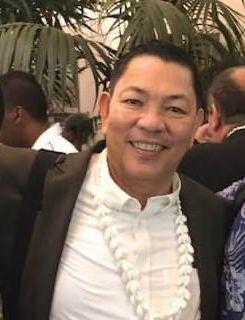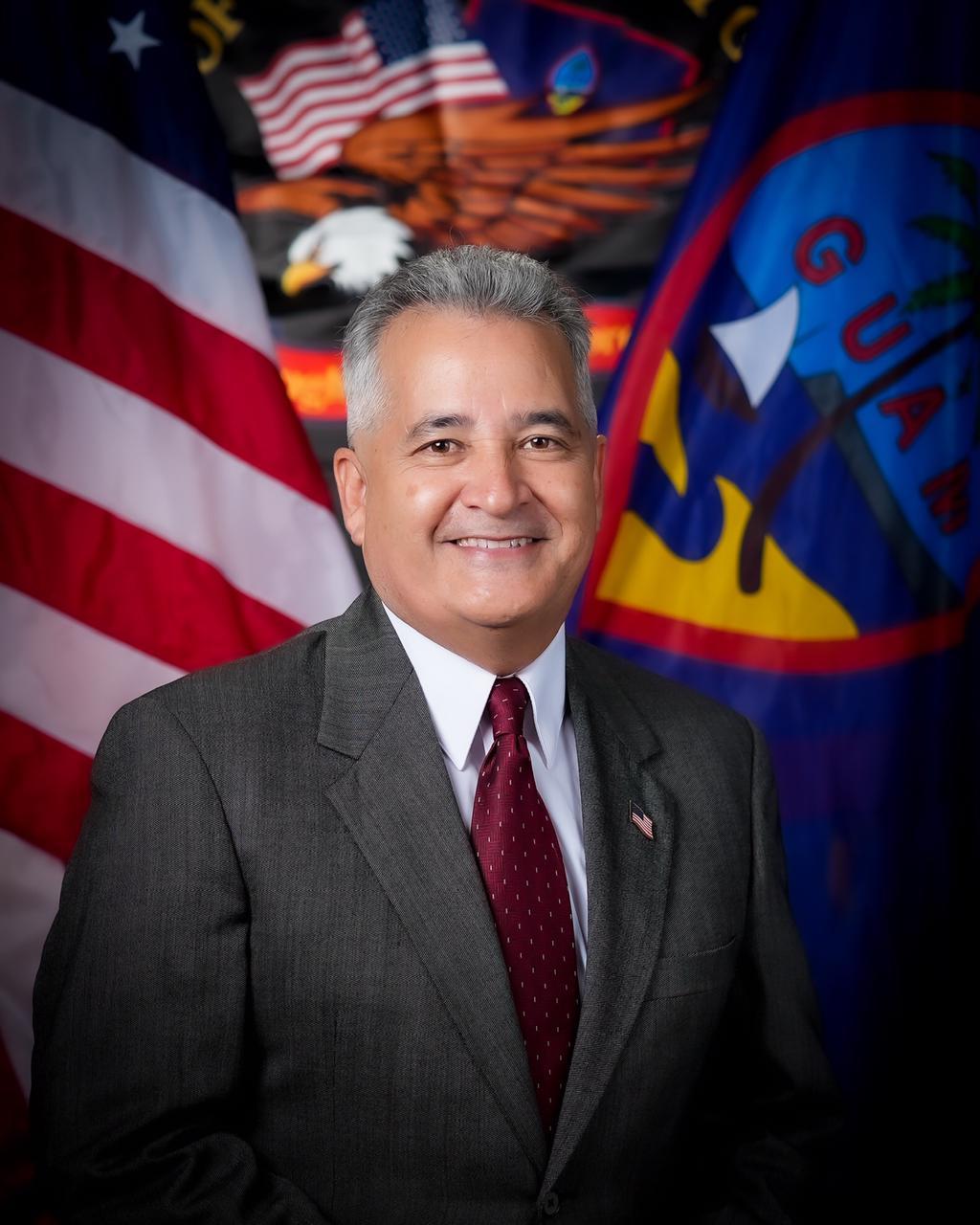
Ignacio “Ike” Santos, the Guam Department of Education federal programs administrator who is the target of an audit and subsequent lawsuit on his approval of overtime during the pandemic, is speaking up for the first time about the scandal. And, according to 142 pages of statements backed up by a paper trail, several Adelup officials including the governor herself encouraged and approved his team’s use of overtime.
That paper trail also includes an email from the U.S. Department of Education – the agency whose grants from which funding for the overtime payments were assigned – that both allowed the overtime payments and the payment of overtime retroactively to March 13, 2020.
$2M in overtime yielded $513M in federal grants to GDOE
In an April Office of Public Accountability audit release, Guam Public Auditor Benjamin Cruz said he wants GDOE to recover more than $2 million in overtime payments made to central office staff between 2021 and 2022 . And due to “potential fraud and abuse by the [Federal Programs Division] and its management,” including the finding that 12 percent of $628,000 in allegedly illegal overtime in Fiscal Year 2022 was paid to the federal programs administrator, Mr. Cruz sent his report to Attorney General Douglas Moylan for criminal review.
According to the investigative audit, scores of central office administrative staffers, who are not eligible for overtime according to the laws of Guam, received $1.5 million in overtime payments in Fiscal Year 2021, and another $628,904 in Fiscal Year 2022. One employee, the audit found, was paid 58.5 hours in overtime in one week, meaning he or she worked an average of 20 hours per work day in that given week.
Another employee, the audit revealed, charged an average of more than 30 hours per week in overtime for eight consecutive weeks. “In other words, this employee worked for about 12 hours every day for six days in a week,” the audit summary states.
Another 16 employees charged an average of more than 20 hours per week on multiple pay periods.
“My team and I monitored, tracked, and documented all of their hours worked in the Kronos automated employee tracking system and in sign-in sheets,” Mr. Santos wrote in a declaration to the Superior Court of Guam replying to a civil suit Tom Fisher, a senator, filed against him for the return of the money.
Among the corresponding attachments was a memorandum from Santos to former GDOE superintendent Jon Fernandez justifying overtime hours and tracking his office’s work in securing three major pandemic-era grants, and normal work on the GDOE annual consolidated grant of federal funds.
“In total, we secured $513,255,135.00–over a half a billion dollars worth of grant awards to GDOE during the COVID-19 pandemic,” Mr. Santos wrote in his declaration.
Fernandez approved overtime; governor, her attorneys, and U.S. DOE encouraged and approved the use of funds

The overtime was approved by Mr. Fernandez following meetings with the governor, her lawyers, Stephanie Flores of the Guam State Clearinghouse, and following an email response from the federal grantor agency.
“It is allowable to use ESF-SEA funds to compensate employees for work, as long as the work was related to preventing, preparing for, or responding to COVID-19,” the U.S. DOE response to the GDOE question of overtime states. The response states further, “Overtime and hazardous/differential pay would be allowable to the extent that it is ‘reasonable for the services rendered and conforms to the established written policy of the non-Federal entity consistently applied to both Federal and non-Federal activities.”
The same written guidance also affirmed the ability to use the federal grants to pay overtime retroactive to the start of the federal state of public health emergency.
“Superintendent Fernandez approved the overtime plans on numerous occasions,” Mr. Santos wrote to the court. The attachments confirm his statement.
 Mr. Fernandez, according to Mr. Santos and his paper trail, met with governor’s office officials to discuss the overtime issue. “That meeting included the Governor, the Governor’s Chief of Staff, Legal Counsel to the Office of the Governor, the Superintendent, and Legal Counsel to GDOE.. At that meeting, the governor informed the superintendent that an emergency had been declared in Guam, and the superintendent should use the emergency declaration to support a finding for increased compensation.”
Mr. Fernandez, according to Mr. Santos and his paper trail, met with governor’s office officials to discuss the overtime issue. “That meeting included the Governor, the Governor’s Chief of Staff, Legal Counsel to the Office of the Governor, the Superintendent, and Legal Counsel to GDOE.. At that meeting, the governor informed the superintendent that an emergency had been declared in Guam, and the superintendent should use the emergency declaration to support a finding for increased compensation.”
The governor and her advisors told Mr. Fernandez in that meeting that he had final authority on approving the overtime compensation, according to the Santos statement.
As Mr. Fernandez was in talks with the governor about the issue, Mr. Santos and his staff reached out to U.S. DOE officials on the question.
“We received three separate, written confirmations from USEd that GDOE may use federal funds to pay for the overtime, night differential, and holiday compensation as long as the proposed compensation conforms to GDOE’s written policy for personnel.
According to those written policies governing overtime during an emergency period, “Employees occupying permanent positions in the classified or the unclassified service, except for the Director of Education/Superintendent, whose regularly scheduled hours of work do not fall within such an emergency period, but who are required to report for, and be on duty, shall be entitled to overtime pay for all such hours worked, including overtime, but not for administrative leave.”
Federal accounts charged, local funds used; clock ticking to get federal reimbursement of funds

The paper trail of the overtime goes back to May 2020, when central office staffers, mainly from the FPD, logged overtime hours. According to the audit, it was not until September 2021, when those employees were paid for those charges in a special check run approved by Mr. Fernandez. The problem, according to the audit, was that GDOE was charging the overtime payments to federal pandemic funds. The U.S. Department of Education, which is the grantor, required eligible overtime be paid only after a prior plan for the overtime needed was approved by the superintendent. There was no approved plan until September 2021, yet GDOE ran overtime checks two weeks after approval for overtime charged more than a year earlier.
According to the Santos statement, and the corresponding paper trail, the reason the overtime was paid much later than when it was accrued was precisely because several layers of verification were pursued prior to the payment.
“Once the overtime plans were approved, the overtime plans and related time sheets were sent through GDOE’s financial management system, known as MUNIS, via the warrant approval process,” Mr. Santos explained in his declaration. “The MUNIS system requires: (1) the GDOE payroll office to audit and review the overtime, night differential, and holiday pay;; (2) the Budget and Business Office approve the availability of local funds; and (3) then Deputy Superintendent of Finance & Administrative Services, Franklin J.T. Cooper-Nurse, authorizes the release of the funds.”
Though the overtime was charged to federal pandemic funds accounts (funds primarily purposed by Congress for the repair and augmentation of schools to account for pandemic-era changes), it was local money that was used to pay the overtime. This is because of GDOE’s high-risk federal funds grantee status and the resulting requirement that local funds be used to pay federal charges, and then U.S. DOE will reimburse GDOE for the expenditure.
”Appropriations to the General Fund operations initially pay for the costs. After that, GDOE would seek reimbursement from the Third Party Fiduciary Agent (TPFA),” the audit states. “However, since overtime was paid, appropriations from other approved budget categories were used and shorted until reimbursements were received. The overtime payments were processed as special check runs and were charged to the ESF II-SEA grant and a corresponding accounts receivable was recorded for reimbursement. As of the date of this report, overtime costs remain as a receivable, pending reimbursement. We recommend that the GDOE seek recovery of the local funds that were paid for ineligible overtime.”
Mr. Santos said he “has no role in the reimbursement process beyond providing documentation and support to GDOE that USEd gave its approval for the proposed use,” which the documents show it did…
“GDOE’s failure to promptly seek reimbursement of the locals funds used for the overtime that USEd approved federal funds for should be brought to the attention of GDOE officials responsible for seeking reimbursement,” the Santos declaration states.
He further stated GDOE still has the ability to get reimbursed for these funds.
“In fact, in the third email that USEd sent to GDOE, ESEd specifically stated GDOE is authorized to request a draw from federal funds for the overtime,” Mr. Santos stated.
One of the grants from which the draw down may be made expires next month (which is a much larger, but different story); and the other expires at the end of September next year.
“I have urged and I continue to urge GDOE to seek reimbursement,” Mr. Santos wrote.
Alleged criminal violations

Aside from the audit finding that Mr. Santos received 12 percent of the illegal overtime paid in Fiscal Year 2022, the audit also found that he signed all four blocks of the required signatories for pay, including that of the certification of funds.
According to the audit, he signed as the requestor of the overtime funds for the FPD. He also allegedly signed for compliance with federal grants, and as the agency’s approving officer. The audit further states he, “Signed on the line for certifying funds through a stamp stating ‘Certified for Allowable Use of Federal Funds.’”
The audit explains:
“A significant concern highlighted in our audit is the apparent breakdown of internal controls, specifically with processing disbursement requests that were signed by an unauthorized certifier of funds. Guam law requires a Certifying Officer, who has been granted an appropriate delegation of authority, to be responsible for determining and certifying the legality of the disbursement of public funds. However, based on our review of the timesheets and our interviews with GDOE’s former and current Certifying Officers, no such appointed certifying officer certified the availability of funds.
”Instead, a certification for ‘allowable use’ of funds was made by the Federal Programs Administrator who received, requested, and approved OT payments for compliance. A conflict of interest exists when the beneficiary of the payment is also part of the approval process. Segregation of duties was rendered ineffective when a document containing one signature for four different roles went through the disbursement process.
“My role was to act as a government official who could certify that federal officials had authorized the use of federal funds to reimburse COVID-19 overtime and related payroll expenses,” Mr. Santos wrote in his declaration. “I dutifully complied with his [Fernandez] mandate to work with USEd and secure the use of federal funds when necessary.”
Mr. Santos stated the audit and Mr Fisher’s allegation that Santos had illegally certified funds is an incorrect understanding of the process. “My certification simply meant federal funds may be used for the proposed action,” he wrote. “When I certified, with the guidance he received from USEd officials, the allowable use of federal funds, those funds still had to be spent or released.”
Mr. Cruz’s audit spoke to the issue of the disbursement of funds as well, blaming Mr. Santos for noncompliance with the government’s disbursing law.
”As a result, payments were disbursed to employees via special payroll check runs. Per Guam law, a disbursing officer is responsible for disbursing funds only upon, and in accordance with duly certified vouchers, examining vouchers as necessary to ensure that they are in the proper form, duly certified and approved and correctly computed based on the facts certified. The noncompliance may result in a dismissal and personal liability of the employee or officer responsible for the payments.“
“At no point during the process did I have the ability to disburse funds related to any of the overtime requests,” Mr. Santos wrote. That process, he explained, goes through a rigid process under the direction of Mr. Cooper-Nurse, but that the superintendent is “responsible for final approval of release of payroll funds.” Mr. Santos also cited a 2008 legal opinion from the Office of the Attorney General which affirms this.
“The only individual who could approve and release funds, whether local or federal, was the superintendent,” Mr. Santos wrote.
Mr. Cruz sent his audit to Attorney General Douglas Moylan. Mr Moylan has not confirmed whether the matter is under criminal investigation.





